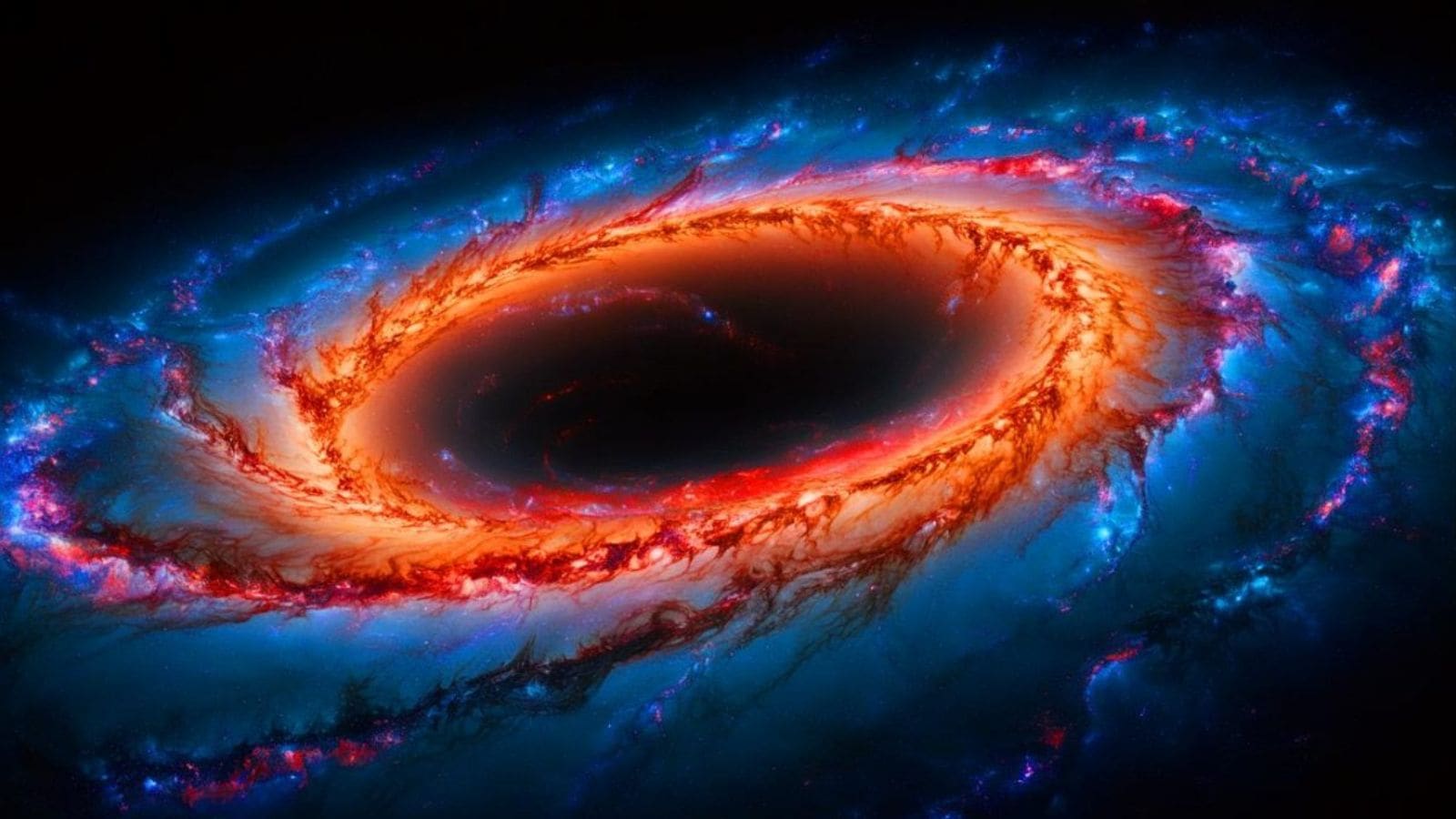Revolutionary Discovery Suggests Universe Could Be Inside a Black Hole
2025-06-17T09:04:38Z

The wonders of space continue to amaze both scientists and space enthusiasts alike. A groundbreaking discovery made using NASA’s James Webb Space Telescope has sparked a wave of excitement and curiosity among the scientific community. This revelation proposes that our universe might actually exist within a colossal black hole, prompting researchers to reconsider their understanding of cosmic origins and the nature of the universe itself.
In an insightful study conducted by researchers at Kansas State University, a surprising pattern was uncovered regarding the spin of galaxies. By analyzing images captured by the James Webb Space Telescope, the team focused on 263 ancient galaxies, some dating back to just 300 million years after the Big Bang. Their findings revealed that approximately 60 percent of these galaxies exhibit a clockwise spin, a discovery that challenges the previously held notion that the spins of galaxies are random and chaotic.
The fact that a significant number of galaxies rotate in the same direction is a pivotal discovery. It implies that the universe may possess a greater degree of order than scientists had once believed. This remarkable finding could pave the way for new theories about the formation of the universe. It also raises intriguing questions regarding the forces that might have led numerous galaxies to spin in a uniform manner.
Additionally, the hypothesis suggesting that our universe could be situated within a black hole has the potential to fundamentally alter our comprehension of space. Such a theory would challenge existing models about the universe’s origins, its structural design, and even speculations about its ultimate fate. If validated, scientists would be compelled to rethink foundational concepts about the universe and develop new theoretical frameworks to explain how it came to exist in this extraordinary state.
This discovery highlights the critical importance of continued exploration of space. As advancements in technology, particularly with instruments like the James Webb Space Telescope, enhance our observational capabilities, we draw closer to uncovering astonishing revelations about the cosmos. The relentless pursuit to fully understand the workings of the universe inspires scientists to delve deeper into the mysteries of reality and question long-held beliefs.
However, it is essential to note potential limitations in this study, such as observational bias stemming from the Doppler effect, which can alter our perception of galaxy movement. This consideration suggests that researchers may need to refine the James Webb Space Telescope's capabilities in order to achieve more precise results. If these observations prove to be influenced by such biases, the apparent patterns of galaxy spins may not reflect genuine cosmic behavior but rather highlight the challenges of accurate astronomical observations.
 Elena Petrova
Elena Petrova
Source of the news: The Indian Express